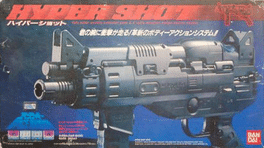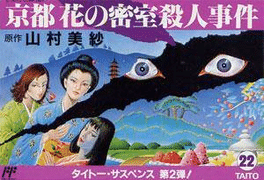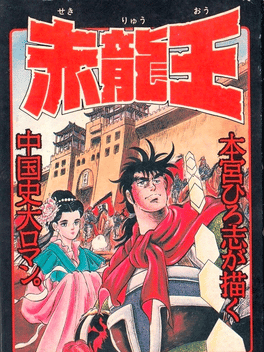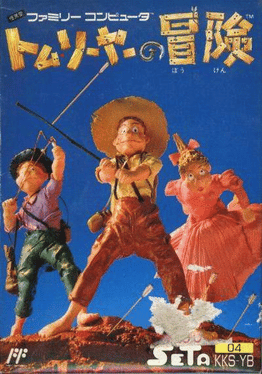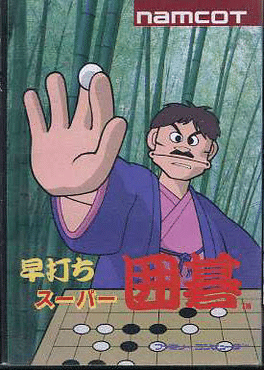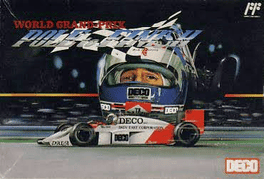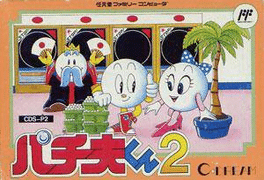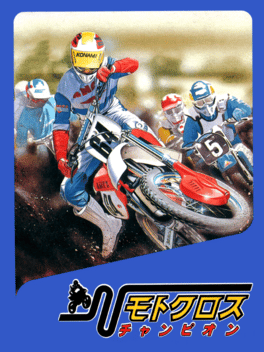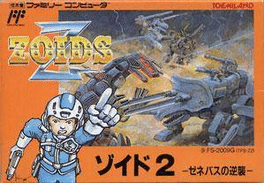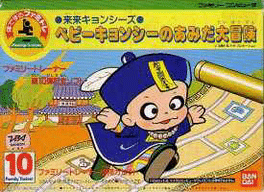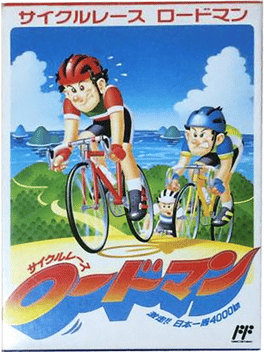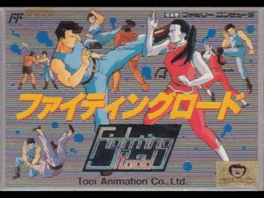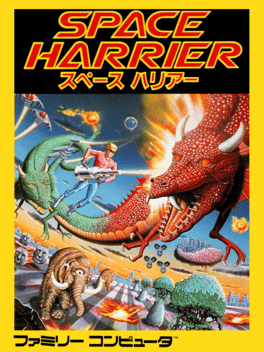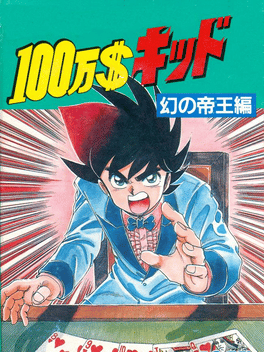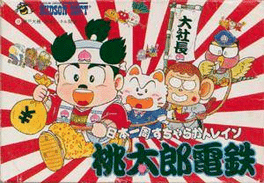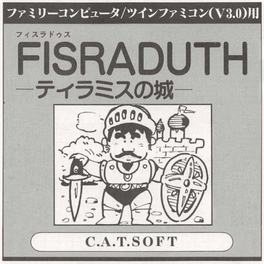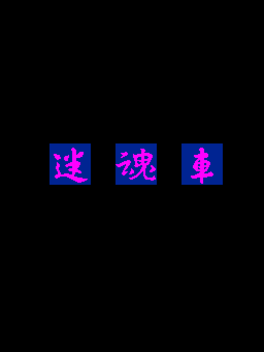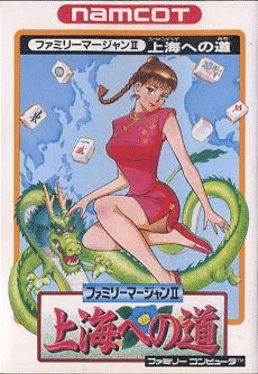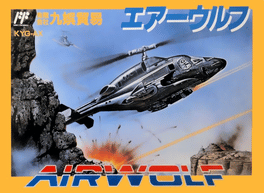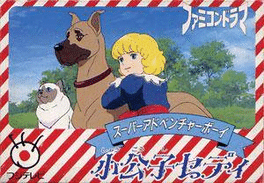New Famicom Games - Page 34
-
Space Shadow
1989
Space Shadow
1989
A sci-fi Light Gun game from Bandai that came packaged with the Hyper Shot Light Gun for the Famicom. Space Shadow is an on-rails sci-fi Light Gun game from Bandai that takes its inspiration from the claustrophobic killer aliens movie Aliens. The player walks down an octagonal hallway and shoots any hostile extra-terrestrial life that bursts forth from one of the side-passages or the ceiling. Space Shadow was the pack-in game for the Bandai Hyper Shot, a sub-machine gun shaped Light Gun for the Famicom. Despite the fact that Light Gun games tended to do far better in the US, neither the Hyper Shot nor this game were ever released outside of Japan. -
Yamamura Misa Suspense: Kyoto Hana no Misshitsu Satsujin Jiken
1989
The second in the Yamamura Misa Suspense series of murder mystery adventure games. It was published by Taito for the Famicom in Japan only. Yamamura Misa Suspense: Kyoto Hana no Misshitsu Satsujin Jiken is the second game based on the work of Japanese mystery novelist Misa Yamamura (the first being Yamamura Misa Suspense: Kyouto Ryuu no Tera Satsujin Jiken) and, like the first, concerns a murder in the picturesque Japanese city of Kyoto. As with the first game, and conversely to other Famicom adventure games around at the time, Hana no Misshitsu Satsujin Jiken has a dynamic bar of commands the player can perform; it changes to reflect what actions are currently possible for the player character in that area, so that they don't waste too much time trying every action in every location to find the next clue. These actions are also represented with symbolic icons, rather than typed out as words. -
Sekiryuu-ou
1989
Sekiryuu-ou
1989
An adventure game for the NES published by Sunsoft. It is based on a Japanese manga set during a historical Chinese civil war. Sekiryuou (often translated as "Red Dragon King") is a traditional Famicom adventure game from Sunsoft, in which the player controls a protagonist via a series of menus in order to solve a series of puzzles. Though Sunsoft is credited as publisher, it is unclear if the game was made in-house or contracted to another developer. The game, and the manga it is based on, depict a period of ancient Chinese history between the Qin and Han dynasties, a few decades before the Three Kingdoms era began. As expected of a transitional period, there was plenty of intrigue and conflict leading up to the change of power that future novels and mangas could draw from. -
Tom Sawyer no Bouken
1989
Tom Sawyer no Bouken
1989
The original Japanese version of The Adventures of Tom Sawyer. The level order is changed in the English version (perhaps so as not to confuse players by starting with the rafting stage). The Japanese original's level 5, the pirate ship, is the English version's level 1, both making the beginning of the game much more difficult, and making the plot non-coehesive. -
Hayauchi Super Igo
1989
Hayauchi Super Igo
1989
Hayauchi Suupaa Igo (Hayauchi Super Go) is a game of "Go" for the Nintendo Famicom. Released only in Japan. -
Pachio-kun 2
1989
Pachio-kun 2
1989
The second NES Pachio-kun game, about a sentient pachinko ball that loves playing pachinko. It was published by Coconuts Japan. Pachiokun 2 is the sequel to Pachiokun, and was also published by slot machine manufacturer Coconuts Japan as well as developed by contract developers Marionette and C Dream. As with the first game, the goal is to help a sentient pachinko ball named Pachio-kun bankrupt a series of pachinko parlors and liberate all his miniature brethren from their flashy mechanical gulags. The game introduces Pachio-kun's wife, presumably named Pachio-chan. If she's upset about her husband's gambling addiction, she never shows it. -
Motocross Champion
1989
Motocross Champion
1989
A NES Motocross racing game developed and published by Konami and released in Japan only. -
Zoids 2: Zenebasu no Gyakushuu
1989
Zoids 2: Zenebasu no Gyakushuu is a Role-Playing game, developed by Micronics and published by Toshiba EMI, which was released in Japan in 1989. -
Family Trainer: Rairai Kyonshizu
1989
The tenth and final Bandai game to use the Family Trainer/Power Pad accesssory for the NES. The player helps a baby kyonshi (jiang shi) find its parents. -
Cycle Race: Road Man
1989
Cycle Race: Road Man
1989
It is the player's ultimate objective to make it all the way around Japan. If the player ends up completely damaging the bicycle, running out of energy, or falling behind a certain ranking, then he or she will automatically lose the race. Players can choose a representative from either Team USA, Team Japan, Team France, or Team Italy. As long as the player has at least one spare bicycle in the inventory, games will never end on a completely damaged bicycle. Passwords are used to save the game. The race is 4,000 kilometers long (2485.5 miles). Players must traverse the countryside that separates major Japanese cities along the coastline during the course of these 4,000 kilometres. Interesting scenery includes forests and cattle farms. Players are always given the exact altitude of each section; they are also shown how far in a stage the player has to advance in order to reach the finish line. -
Fighting Road
1989
Fighting Road
1989
Fighting Road is an Action game, developed and published by Toei Animation, which was released in Japan in 1988. -
Space Harrier
1989
Space Harrier
1989
A port of Space Harrier based on the Sega Mark III release. Sprites are smaller and less colorful. -
$1,000,000 Kid: Maboroshi no Teiou-hen
1989
$1,000,000 Kid: Maboroshi no Teiou-hen is a Famicom game based on the manga series $1,000,000 Kid by Yuki Ishigaki. -
Momotaro Dentetsu
1989
Momotaro Dentetsu
1989
The first in Hudson's series of train-themed video board games which was released on the Famicom in Japan only on December 2nd 1988. Momotaro Dentetsu ("Momotaro's Railway") is a train-themed board game featuring the folklore hero of Momotaro, the Peach Boy. It is the first in Hudson's long-running series of the same name. The goal is for each player to drive a train around a board by rolling a die and trying to make as much money as possible, a la board games like Monopoly or the Game of Life. The game and its series is not to be confused with Momotaro Densetsu, an earlier RPG from Hudson featuring the same characters. -
Fisraduth: Castle of Tyramis
1988
You control a knight with a sword that can swing high or low, and you fight creatures that can hit you or shoot things at you. Along the way you gain a shield that can block projectiles and can increase your armor/sword strength by going into rooms (including secret rooms) to collect powerups. You are usually limited to a single background in Family BASIC. Fisraduth uses darkness to hide portions of the background to give you the feeling of multiple rooms. There are even hidden, secret rooms. -
Míhún Chē
1988
Míhún Chē
1988
Míhún Chē (迷魂車), more commonly known as BB Car (屁屁車) or eventually Ecstasy Car and Super Car (奇妙車) is a port of Rally-X and New Rally-X made for the Famicom by Hwang Shinwei in 1988. It was originally published by Chi Chi Toy Co., Ltd under the Mi Hun Che and Super Car title. BB Car is a slight update released 3 years later, in 1991. -
Family Mahjong II: Shanghai he no Michi
1988
Family Mahjong II: Shanghai e no Michi is a Mahjong game released only in Japan for the Nintendo Famicom. Family Mahjong II: Shanghai e no Michi is a Mahjong game and the direct sequel to Family Mahjong. In addition to the standard Mahjong mode, there is a tournament mode with a slight RPG aspect to it, in that the player can enhance certain stats after winning games in order to increase their odds in future rounds of the tournament. The game is a one-on-one version of the game, less common in real-life Mahjong games but the standard for computer adaptations due to the reduced complexity of having only a single AI opponent. Nihon Bussan was responsible for Family Mahjong II's development and was at the time fairly well known for their Mahjong Arcade games. -
Airwolf
1988
Airwolf
1988
Airwolf, based on the Donald Bellisario 80s TV show about a hi-tech military helicopter solving Cold War era missions, is a horizontal shoot-em-up. Kyugo Boueki originally created it for the Arcades in 1987 and it would receive an NES home version the following year. It is not to be confused with the 1989 Airwolf licensed game from Beam Entertainment and Acclaim. The player receives their mission via an introductory cutscene, chooses the weapon load-out for the Airwolf that best suits the kind of resistance they're likely to face (so an emphasis on bombs if there's expected to be a lot of ground units) and is sent off to complete the mission. For the boss battles, the game will occasionally switch to a first-person view in which the controller guides a set of crosshairs on screen. The goal of these battles is to shoot down each element of the boss (guns, etc.) as well as any projectiles the boss sends the player's way. -
Shoukoushi Cedie
1988
Shoukoushi Cedie
1988
A NES adventure game based on the anime of the same name, which is an adaptation of Little Lord Fauntleroy. Shoukoushi Ceddie (sometimes Cedie) is the Japanese title of the 1886 Frances Hodgson Burnett novel Little Lord Fauntleroy, about a down-to-earth kid from New York discovering his heritage as the heir to an Earldom in England, moving to his inherited estate and learning how to become a nobleman. Fuji Television created a 43 episode anime series based on the novel in 1988, and this video game adaptation is based on that TV show. Fuji Television is perhaps best known in western video game circles for being responsible for Doki Doki Panic (the game the American/European Super Mario Bros 2 is based on) as well as airing GameCenter CX (or Retro Game Master). The game plays much like a regular Famicom adventure game: The player walks around, talks to people and finds items which are used to solve puzzles. However, rather than selecting destinations from a menu, the player manually walks around the different local
